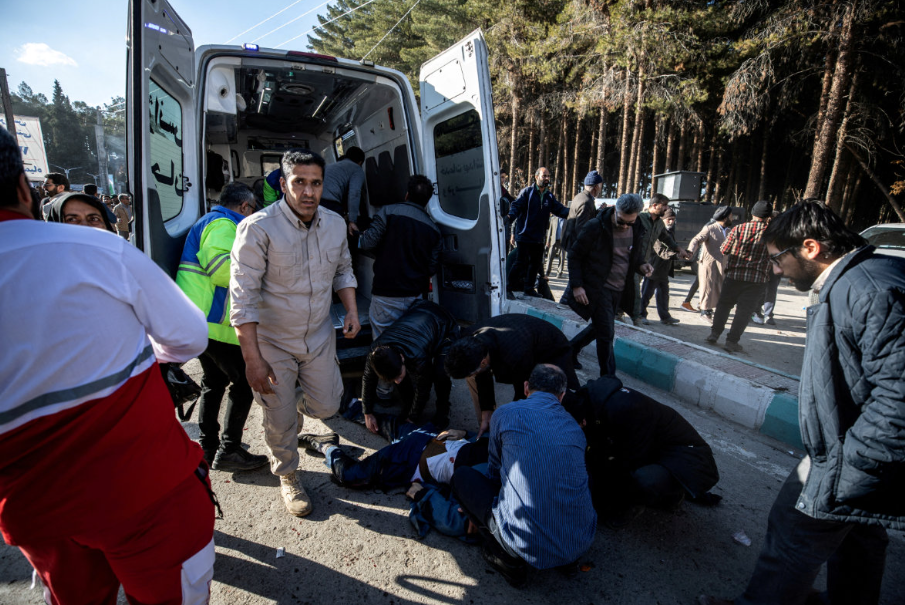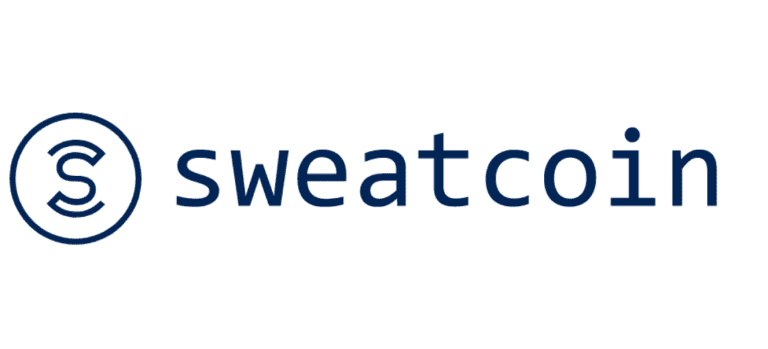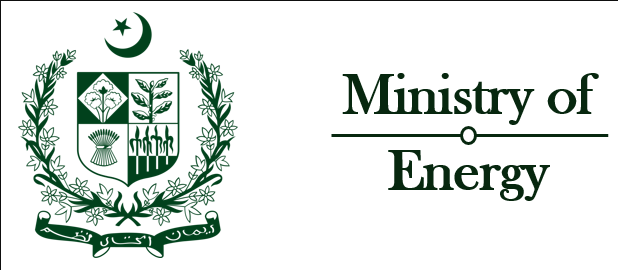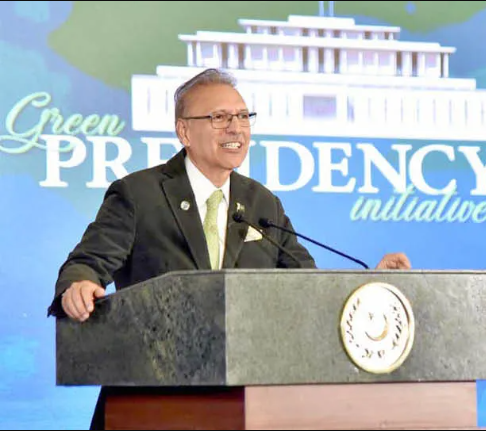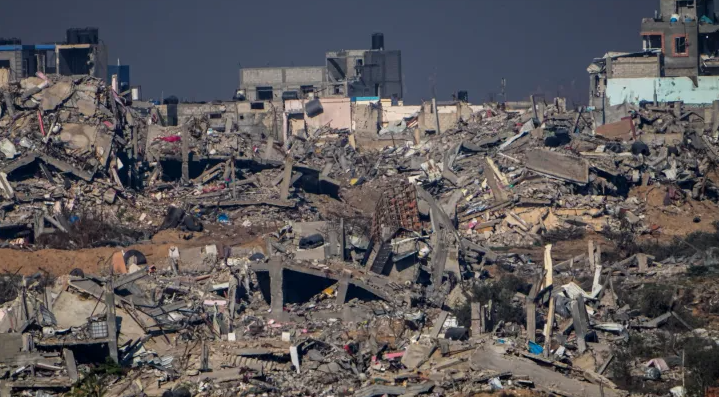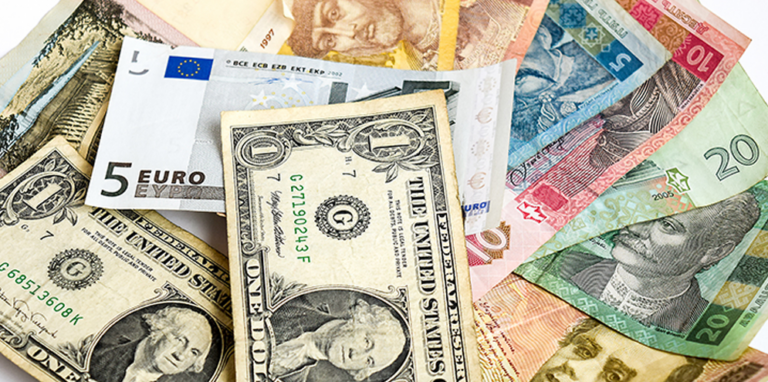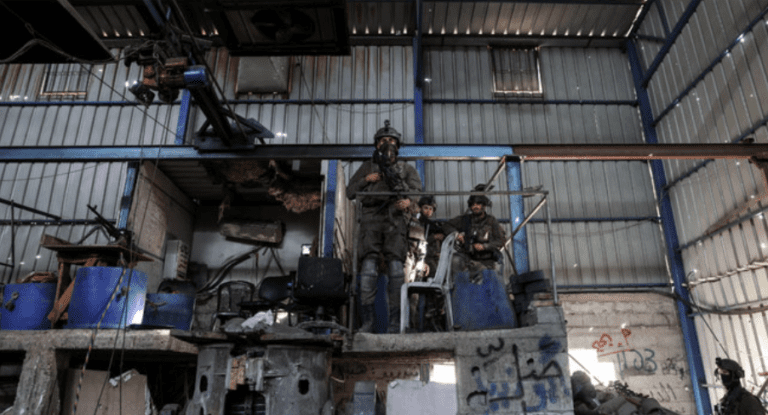Iran Accuses Israel, and US of Bomb Attack on Slain IRGC Chief Memorial
In a tragic incident, twin bomb blasts rocked southern Iran, claiming the lives of at least 95 people during a gathering commemorating the fourth anniversary of the death of Revolutionary Guards general Qasem Soleimani in a US strike. The attacks occurred in Kerman, Soleimani’s hometown, near the Martyrs Cemetery at the Saheb Al-Zaman Mosque.
Iran swiftly pointed fingers at Israel and the United States for the “terrorist attack,” accusing them of orchestrating the explosions. The event unfolded against the backdrop of heightened tensions in the Middle East due to the Israel-Hamas conflict in Gaza and the recent killing of a Hamas senior leader in Lebanon.
The unclaimed attacks raised concerns of a potential escalation in the region, impacting global markets with a more than three percent surge in oil prices. Mohammad Jamshidi, the Iranian president’s political deputy, expressed skepticism about Washington’s denial, stating, “A fox smells its own lair first,” and asserting that the responsibility lies with the US and Israel.
While the United States categorically rejected any involvement, with State Department spokesman Matthew Miller stating, “The United States was not involved in any way,” Israel refrained from commenting, focusing on its conflict with Hamas.
Iran’s supreme leader, Ayatollah Ali Khamenei, condemned the attacks, attributing them to “evil and criminal enemies” of the country. President Ebrahim Raisi declared the incident a “heinous” crime, prompting Iran to observe a national day of mourning.
The explosions, occurring approximately 15 minutes apart, targeted Soleimani’s supporters gathered near his grave. Conflicting reports initially suggested a higher casualty count, with 103 reported dead, but Health Minister Bahram Eynollahi later revised the toll to 95, citing double registration of some names.
The scenes of chaos and tragedy unfolded as paramedics, including three who rushed to the scene after the first explosion, became victims themselves. Online footage captured the panic among crowds and the immediate response of security personnel.
In a show of defiance, crowds returned to the Martyrs Cemetery, chanting anti-Israel and anti-America slogans. Meanwhile, in Tehran, thousands gathered at the Grand Mosalla Mosque to pay tribute to Soleimani.
International condemnation poured in, with the United Nations, European Union, Saudi Arabia, Jordan, Germany, and Iraq expressing solidarity with Iran. UN chief Antonio Guterres strongly condemned the blasts, and the EU’s top diplomat, Josep Borrell, conveyed condolences while denouncing the terrorist attack.
The tragic incident follows the killing of Hamas leader Saleh Al-Aruri in Lebanon, blamed on Israel, intensifying tensions in the already volatile region. These bomb blasts mark Iran’s deadliest incident since the Cinema Rex attack in 1978.
Against a backdrop of historical animosity, Iran and Israel have engaged in a shadow war involving killings and sabotage. Recent reports of arrests linked to terrorist operations and alleged plots, including targeting Soleimani’s grave, highlight the ongoing tensions in the region.
Qasem Soleimani, regarded as a hero in Iran for his role in defeating ISIS, was a significant regional powerbroker, shaping Iran’s political and military agenda in Syria, Iraq, and Yemen. The repercussions of these attacks are likely to resonate beyond Iran’s borders, impacting the already fragile dynamics of the Middle East.
